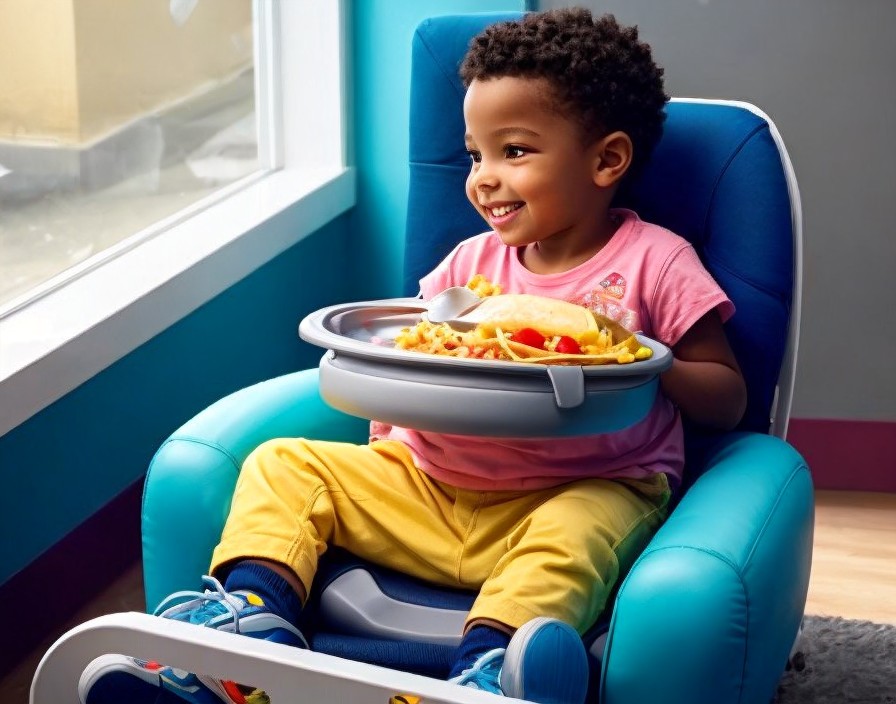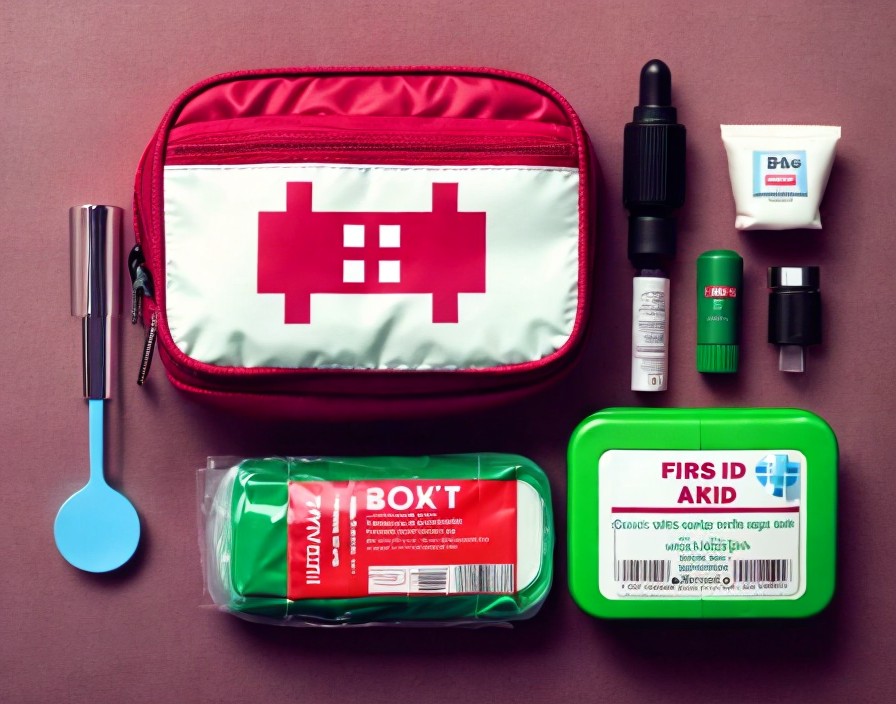
In the quiet sanctuary of the womb, a profound and intricate dialogue unfolds – one that weaves the tapestry of a child’s future. This dialogue, often unseen and unspoken, resonates through the emotions of the mother, carrying with it the power to shape a life before its first breath. Current research reveals a captivating narrative: the emotional state of a pregnant woman is not just a transient experience; it imprints on the developing brain of her unborn child, laying down the foundations of emotional, cognitive, and psychological well-being. This is a journey into understanding how the subtle interplay of prenatal emotions, from the tranquility of happiness to the turbulence of stress and anxiety, crafts the initial chapters in the life story of a human being. As we delve deeper into this exploration, we uncover the hidden impact of maternal emotions and how they echo into the future of the next generation.
The Science Behind the Emotion-Fetus Connection
In the fascinating world of prenatal development, the emotional state of a mother plays a crucial role that goes beyond the realms of the psychological and enters the biological. Groundbreaking research has unearthed a startling truth: the emotions a mother experiences during pregnancy can leave indelible marks on her child’s future.
The Biological Pathways of Emotion
When a mother feels joy, stress, or anxiety, these emotions are not just fleeting sentiments. They transform into biological signals that cross the placental barrier, influencing the development of the fetus. This biological conversation between mother and child is intricate and profound. Hormones like cortisol, often elevated during stress, can alter the uterine environment and impact fetal brain development, potentially affecting the child’s emotional regulation and stress responses later in life.
Long-term Effects: From Womb to World
The implications of prenatal emotions extend far beyond birth. Studies have shown that children whose mothers experienced high levels of stress or anxiety during pregnancy are more likely to face challenges such as emotional reactivity, behavioral issues, and learning difficulties. These findings are not just statistical correlations; they reveal a deep and lasting influence of prenatal emotional environments on a child’s developmental trajectory.
The Power of Positive Emotions
On the brighter side, positive maternal emotions can have equally significant effects. A calm and happy prenatal environment can foster better emotional and cognitive development in children. Engaging in activities that promote positive emotions, such as mindfulness, yoga, or simply enjoying a hobby, can be beneficial not just for the mother’s well-being but also for the healthy development of the fetus.
In understanding the power of prenatal emotions, we begin to appreciate the profound responsibility and opportunity that pregnancy brings. It’s a time when a mother’s emotional health becomes a cornerstone for her child’s future, highlighting the importance of support, care, and a nurturing environment during this critical period.
Navigating the Emotional Landscape of Pregnancy
Pregnancy is not just a physical journey but also an emotional odyssey that carries profound implications for both the mother and the developing baby. The emotional landscape during these critical nine months is varied and complex, encompassing a spectrum of feelings from joy and anticipation to anxiety and stress.
Understanding the Spectrum of Maternal Emotions
Expectant mothers often experience a wide range of emotions influenced by hormonal changes, personal circumstances, and the inherent uncertainties of pregnancy. Anxiety and stress are common, but so are feelings of happiness and excitement. Each of these emotions plays a role in shaping the prenatal environment.
The Impact of Stress and Anxiety
While occasional stress is a normal part of life, chronic or high levels of stress during pregnancy can be concerning. Research indicates that prolonged stress can lead to increased risks of premature birth, low birth weight, and developmental challenges for the child. Stress management techniques, such as mindfulness, relaxation exercises, and seeking support from family, friends, or professionals, become crucial.
The Role of Support Systems
The importance of a strong support system cannot be overstated. Support from partners, family members, friends, and healthcare professionals can significantly alleviate emotional distress. Prenatal classes, counseling sessions, and support groups are invaluable resources for expectant mothers, providing not only information but also emotional comfort and reassurance.
Emotional Health as a Priority
Prioritizing emotional health during pregnancy is as important as physical health. Regular check-ins with healthcare providers should include discussions about emotional well-being. This holistic approach ensures that both the physical and emotional needs of the mother are met, paving the way for a healthier and happier pregnancy experience.
In this journey of emotional navigation, the key is to acknowledge and address these feelings, seeking help when needed, and embracing the joyous moments, thus creating an environment conducive to both maternal well-being and healthy fetal development.
Embracing Positive Emotional Practices for Prenatal Health
The emotional well-being of an expectant mother is not just a personal concern but a foundational aspect of prenatal care that benefits both mother and child. Embracing positive emotional practices during pregnancy is essential for fostering an environment conducive to healthy fetal development.
The Power of Positive Emotions
Positive emotions during pregnancy, such as happiness, joy, and contentment, can have a beneficial impact on fetal development. Engaging in activities that promote these emotions can enhance the prenatal environment. Practices like meditation, prenatal yoga, and engaging in hobbies or activities that bring joy can significantly contribute to a positive emotional state.
Cultivating Mindfulness and Relaxation
Mindfulness and relaxation techniques are powerful tools for managing stress and anxiety. Techniques like guided imagery, deep breathing exercises, and mindfulness meditation can help in maintaining a calm and balanced emotional state. These practices not only benefit the mother’s mental health but also contribute positively to fetal development.
The Role of Diet and Exercise
Physical well-being is intrinsically linked to emotional health. A balanced diet rich in nutrients and regular exercise can have a positive impact on mood and stress levels. Activities like walking, swimming, or prenatal exercise classes not only keep the body healthy but also release endorphins, which are natural mood boosters.
Creating a Supportive Environment
The environment in which an expectant mother spends her time can significantly influence her emotional state. A peaceful, supportive, and loving environment can contribute to feelings of security and happiness. Involving the partner, family, and friends in the pregnancy journey can provide emotional support and build a nurturing environment for both mother and baby.
Incorporating these positive practices into daily life during pregnancy can have far-reaching benefits, laying the groundwork for a healthy emotional start for the baby and a more enjoyable pregnancy experience for the mother.
Integrating Professional Support for Emotional Well-being
While personal and familial support plays a crucial role in managing prenatal emotions, professional guidance is equally essential in navigating the emotional complexities of pregnancy.
The Role of Healthcare Providers
Regular consultations with healthcare providers offer an opportunity to monitor not only physical but also emotional health. Obstetricians, midwives, and other prenatal care specialists can provide valuable insights and advice on managing emotional fluctuations during pregnancy. These professionals can also identify signs of more serious conditions like prenatal depression or anxiety, ensuring timely intervention.
Seeking Mental Health Support
For some women, pregnancy can be a period of heightened emotional vulnerability. In such cases, seeking support from mental health professionals like psychologists or psychiatrists can be crucial. Therapy or counseling sessions can offer a safe space to address concerns, process emotions, and develop coping strategies. In certain situations, medication may be recommended, always considering the safety and well-being of both mother and child.
Educational Resources and Prenatal Classes
Prenatal classes serve as an invaluable resource for expectant parents. These classes not only cover the physical aspects of childbirth and care but also often address emotional preparation for parenthood. Additionally, books, online resources, and workshops focusing on prenatal emotional health can provide useful information and strategies for managing stress and promoting well-being.
Building a Community of Support
Connecting with other expectant mothers through support groups or community gatherings can offer emotional solidarity and understanding. Sharing experiences and tips with those who are going through similar journeys can be comforting and reassuring.
In conclusion, integrating professional support into the prenatal care routine ensures a comprehensive approach to emotional well-being. It empowers expectant mothers with the knowledge, tools, and support necessary to navigate the emotional highs and lows of pregnancy, setting a strong foundation for both maternal and fetal health.
Preparing for Postpartum: Extending Emotional Well-being Beyond Birth
The journey of emotional well-being does not end with childbirth; it extends into the postpartum period, which can be as challenging as it is rewarding. Preparing for this phase is crucial for new mothers and their families.
Anticipating Postpartum Emotional Changes
The postpartum period often brings a whirlwind of emotions, ranging from immense joy to overwhelming anxiety or sadness. Understanding and anticipating these changes can help in managing them more effectively. Education about common emotional experiences after childbirth, including the ‘baby blues’ and postpartum depression, is essential.
Building a Postpartum Support Network
Establishing a support network before the baby arrives can provide crucial help in the weeks following childbirth. This network can include family, friends, healthcare providers, and postpartum doulas. They can offer practical support, like helping with household chores or baby care, and emotional support.
Prioritizing Self-Care After Delivery
Self-care remains as important after delivery as during pregnancy. New mothers should be encouraged to take time for themselves, rest as much as possible, and continue practices like mindfulness or gentle exercises as advised by their healthcare provider.
Professional Support for Postpartum Challenges
For some women, professional support may be necessary to navigate postpartum challenges. This could include therapy for postpartum depression or anxiety, lactation consulting for breastfeeding issues, or physical therapy for post-delivery recovery.
By preparing for the postpartum period during pregnancy, new mothers can set themselves up for a smoother transition into this new chapter of life. This preparation not only helps in managing potential challenges but also enhances the joy and fulfillment of early motherhood.
Empowering the Journey: Tools and Techniques for Maintaining Emotional Balance
In the final stretch of this journey, it’s essential to focus on tools and techniques that empower expectant and new mothers to maintain emotional balance. This section delves into practical strategies that can be integrated into daily life to foster emotional well-being.
Mind-Body Techniques for Emotional Equilibrium
- Meditation and Mindfulness: These practices offer a way to center oneself and manage stress. Guided meditations and mindfulness exercises can be particularly helpful in cultivating a sense of calm and presence.
- Breathing Exercises: Simple yet effective, breathing exercises can be a quick way to reduce stress and anxiety, especially during moments of overwhelm.
Lifestyle Adjustments for Enhanced Emotional Health
- Regular Physical Activity: Exercise, tailored to the stage of pregnancy or postpartum recovery, can significantly improve mood and reduce stress.
- Balanced Nutrition: A diet rich in essential nutrients supports not just physical health but also emotional stability. Omega-3 fatty acids, for instance, are known for their mood-boosting properties.
- Adequate Sleep: Prioritizing sleep is crucial, as lack of sleep can exacerbate emotional distress.
Creative Outlets for Emotional Expression
- Journaling: Writing down thoughts and feelings can be a therapeutic way to process emotions.
- Artistic Activities: Engaging in art, music, or other creative endeavors offers an expressive outlet for emotions and can be deeply soothing.
Building a Resilience Toolbox
- Cognitive-behavioral Techniques: Learning and practicing cognitive-behavioral strategies can help in managing negative thoughts and building emotional resilience.
- Positive Affirmations: Regularly practicing positive affirmations can shift mindsets and promote a more positive emotional state.
By equipping themselves with these tools and techniques, women can navigate the emotional complexities of pregnancy and postpartum with greater ease and confidence. This proactive approach not only enhances their own well-being but also sets a positive foundation for their child’s emotional development.
Conclusion: Embracing the Emotional Journey of Pregnancy
As we reach the conclusion of our exploration into prenatal emotions and their profound impact, it’s clear that this journey is much more than a physical transformation. It’s a deeply emotional and psychological experience that shapes not only the mother’s life but also the future of her child.
Pregnancy and the subsequent postpartum period are times of immense change, challenge, and growth. The emotions experienced during these phases are powerful and far-reaching, influencing the well-being of both mother and child. Recognizing and respecting this emotional journey is crucial. It’s about creating a nurturing environment for the unborn child and a supportive, caring space for the mother.
The journey through pregnancy and into motherhood is unique for every woman. Embracing this journey with mindfulness, support, and self-care can transform these challenges into a profound experience of growth and bonding.
As we close this chapter, remember that the emotional health of a mother is a beautiful, intricate dance that echoes into the life of her child. Nurturing this aspect of pregnancy is as essential as physical care, ensuring a strong foundation for the future of both mother and child.
10 FAQs for “Understanding Prenatal Emotions: How Your Feelings Affect Your Unborn Baby”
- Can my stress during pregnancy affect my baby? Yes, high levels of stress can impact fetal development, potentially affecting the baby’s emotional regulation and stress responses later in life.
- What can I do to manage anxiety while pregnant? Engaging in mindfulness, yoga, and relaxation techniques, along with seeking professional support if needed, are effective ways to manage anxiety during pregnancy.
- Do positive emotions during pregnancy benefit the baby? Absolutely, positive emotions can foster a healthy prenatal environment, contributing to better emotional and cognitive development of the fetus.
- Is it normal to experience mood swings during pregnancy? Yes, hormonal changes and the stress of pregnancy can lead to mood swings. It’s important to monitor these changes and seek help if they become overwhelming.
- How can I improve my emotional health during pregnancy? Regular exercise, a balanced diet, adequate sleep, and engaging in activities that bring joy can significantly improve emotional well-being.
- Should I talk to my doctor about my emotional state during pregnancy? Yes, discussing emotional health with your healthcare provider is as important as discussing physical health.
- Can prenatal emotions have long-term effects on my child? Research indicates that prenatal emotions can have lasting effects on a child’s development, including their emotional reactivity and behavioral patterns.
- How can I prepare for emotional changes in the postpartum period? Educating yourself about common postpartum emotional experiences and building a support network can help you prepare for and manage these changes.
- Are there professional resources available for emotional support during pregnancy? Yes, there are therapists, counselors, and support groups specializing in prenatal and postpartum emotional health.
- How important is a support system during pregnancy? A strong support system is crucial as it can provide both emotional comfort and practical help, reducing stress and anxiety levels.
Blog Tags
Pregnancy, Emotional Health, Maternal Well-being, Fetal Development, Stress Management, Positive Parenting, Mindfulness, Postpartum Care, Mental Health, Prenatal Care

















